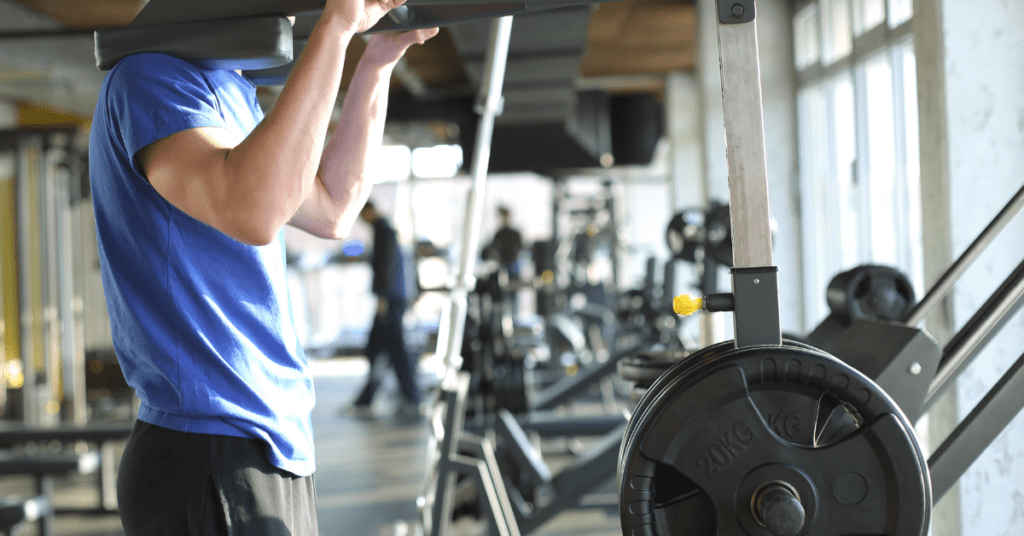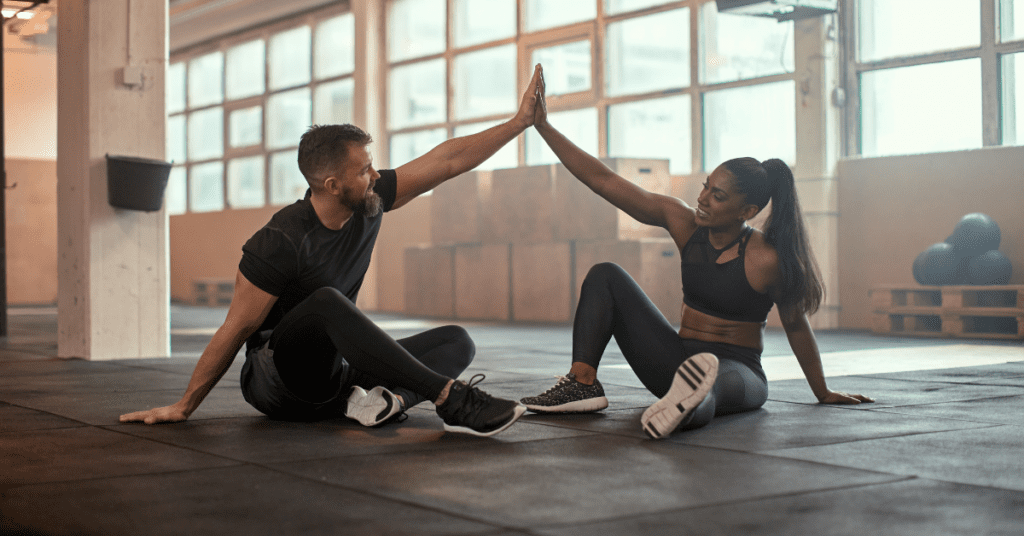If you’ve been training for years, you probably feel like you understand fitness well: what to do and what not to.
But what if we were to tell you that you might still be making some crucial mistakes that slow down your progress?
Sometimes, we develop habits early on and never look back to see if they are good. In some cases, habits stick with us for a long time and lead us down unproductive paths.
To that end, we’ve put together a list of mistakes people make in the gym, even after years of training consistently.
1. Not Tracking Your Training And Progress
Walk into most gyms today, and you’ll be sure to find plenty of driven and hard-working individuals. One person will be squatting, another will be doing curls, and someone else will be setting a personal best on the bench press. That’s all fantastic.
Many people train hard and hit the gym consistently but make the colossal mistake of never documenting their workouts and progress or lack thereof.
Not tracking your training journey is bad because you don’t know how well or poorly things are going. Sure, you’re consistent, and you’re lifting weights. But how are things going? Are you getting stronger, more resilient, or better in any way? Or are you stuck in a rut with no results to show for your hard work?
To fix this, download a phone app where you can track your workouts. A simple note-taking app can work, or you can download a fitness app. The point is, have somewhere to write your activities as they happen. Then, review your performance every few weeks to see how things are going.
You can also grab a simple journal and write your workouts there if you’re more old school.

2. Improvising All The Time
Improvising is by no means a bad thing. For instance, if you go on holiday for two weeks and want to keep training, you’ll probably have to change up your training. You might choose to do other gym exercises, bodyweight training, or a different training style. In such a scenario, improvising would be beneficial because it would allow you to stay active.
Knowing how to improvise is a beneficial skill to have. The problem is, far too many people improvise all the time and never get into a structured training program. They go to the gym and do what feels natural. Sure, that’s better than nothing. But good training results come from the structure and planning ahead of time.
To avoid this mistake, set a training plan and stick to it. It doesn’t have to be complicated or incredibly demanding, and it can be as little as three workouts with four movements in each session. But sticking with it teaches you structure and how to adhere to a specific plan.

3. Doing The Same Thing Over And Over
As we start training, we’re motivated and excited by the newness of it all. We get to learn all of these exercises, get stronger, and see visual improvements from week to week. But after months and years, we lose that enthusiasm, our drive to improve goes down, and we get comfortable.
Being comfortable with your training means you’re not pushing enough, which means you’re also not improving or moving closer to your goals.
Many trainees hit the gym consistently for years but rarely see much improvement precisely because they’ve fallen into a comfort zone and have stopped pushing to keep improving. But here is the thing:
Your body needs a reason to keep getting stronger, faster, and more resilient. If your body can handle the stress you’re causing through training, it won’t have a reason to improve further.
To avoid making this mistake, log your workouts, review your performance, and constantly strive to improve in some way. If you lift weights, try to lift heavier, do more reps, take shorter breaks between sets, or do more challenging movements. If you do aerobic exercise, cover greater distances, put more time into it, train at an incline, go faster, or find other ways to get uncomfortable.

4. Not Warming Up Well
Imagine this scenario:
You walk into the gym, do a couple of arm swings, load up the barbell, and lie down to bench press. It sounds ridiculous, right? Well, the scenario is much more common than you might imagine.
Too many people never realise the importance of warming up well and put themselves at a higher risk of injury. To make matters worse, not warming up well prevents them from performing at their best or getting into the zone.
First, a good warm-up raises core body temperature, warms the synovial fluid that lubricates your joints, and improves muscle elasticity. Second, warming up raises the temperature of crucial enzymes responsible for energy production, which is essential for optimal training performance. Third, warming up prepares your mind and puts you in a mood for training and exerting yourself. If you do it long enough, it can become a ritual, which you subconsciously associate with hard work.
Plus, warming up is good for practicing proper technique, establishing a better mind-muscle connection, and ensuring everything is okay with your body. For example, if you lie down to do warm-up sets on the bench press and feel your right shoulder hurting a bit, you can switch gears and do another exercise that day. In contrast, finding that your shoulder aches when lifting submaximal loads puts you at a much higher risk of an injury.
To prevent this mistake, set aside at least ten minutes to warm-up well before each workout. You can go about it in many ways, but some combination of light cardio, dynamic stretching, and warm-up sets will work great.

Conclusion
Fitness is a life-long journey. There is always something to learn, improve, or get rid of to make the entire process more effective.
We often gain confidence through experience, which is good, but it can also be harmful. We begin to think that we know it all and often overlook our process, which means we ignore the mistakes we make.
If you’re interested in being a life-long learner and helping others on their journey, consider a career in personal training. Our Personal Trainer courses offer lots of valuable information that will make you a better athlete and coach, capable of spotting mistakes and helping others improve their processes.

